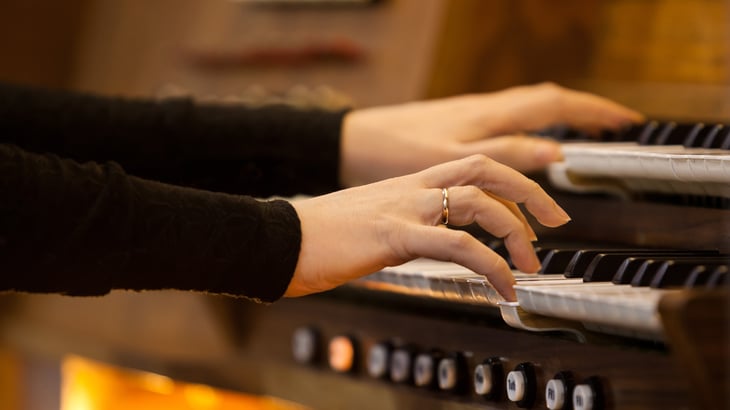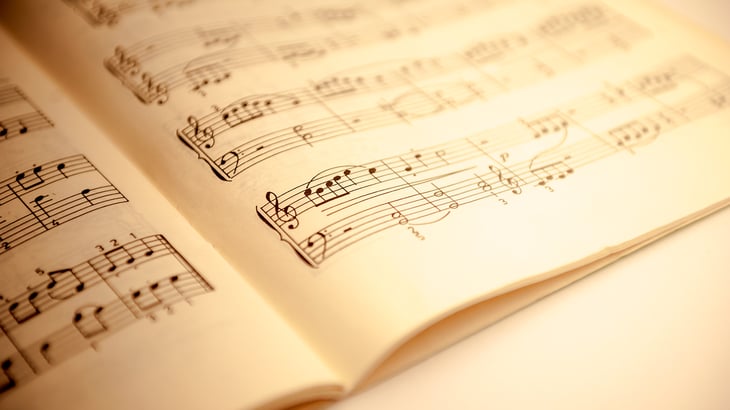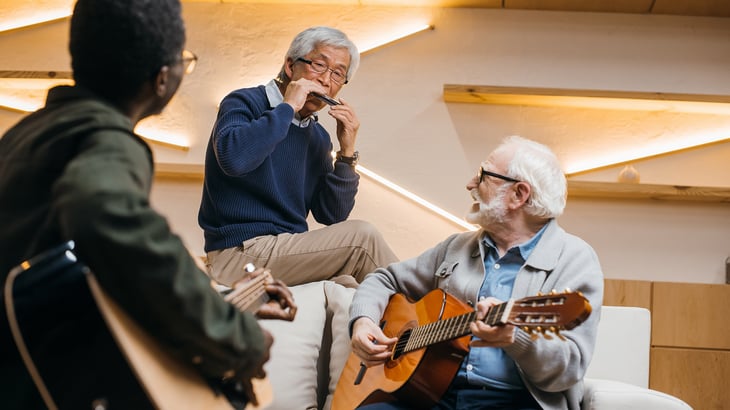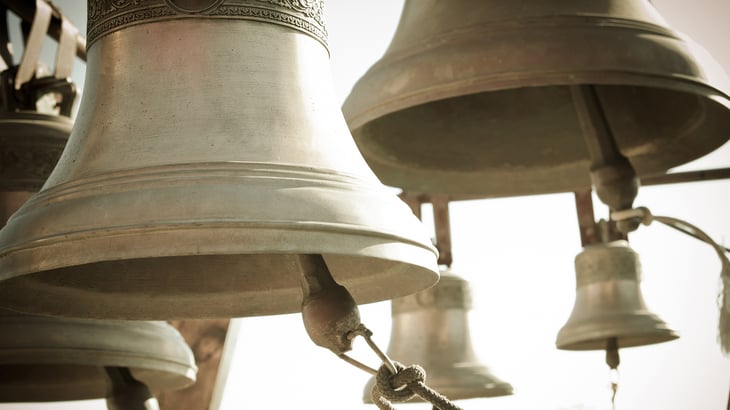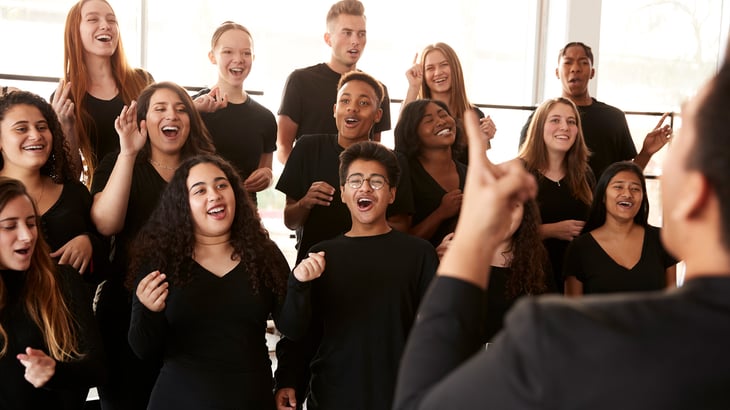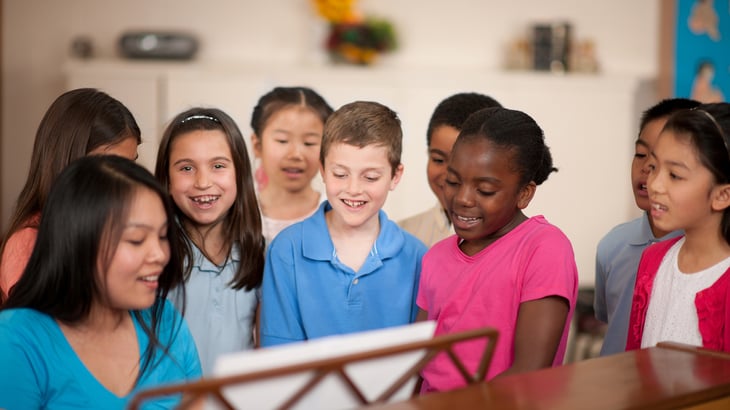Recent Posts by Marie Greenway
Why Christians Need Pop Music
We need good music.
We need Palestrina and Bach and Mozart and Beethoven and Mendelssohn and so many others. We need good Renaissance and Baroque and Classical and Romantic music. We need good cantatas and passions and chorales and chorale preludes. We need our modern church composers, for what would I do Sunday after Sunday without my trusty Hymn Prelude Library? We need beautiful, classical, and sacred music that uplifts the soul and draws us to heaven, or refreshes the spirit, or teaches our children what truth, beauty, and goodness sound like.
But just as much as all of that, we need good modern secular pop music.
What Songs Are Stuck in Your Head?
I was leaning into the fridge and looking for a snack when the blasphemous lyrics popped into my head from out of nowhere.
It was a line from a song by a band my husband and I had recently seen in concert. Their songs are relatively clean, any crude or uncouth language typically warranted by the dark life circumstances they detail, things like broken homes and hurt people. This band sings about these things as a way to cope with a sinful world, not in order to praise them; however, it is not a Christian band.
Cling to Hymns in a Pandemic
This pandemic is certainly horrific, but I have found many positives during this time. One of these positives was a slower and more reflective Holy Week, allowing me to ponder and study Johann Sebastian Bach’s St. Matthew Passion and to write some lessons on it for my school. In this Passion, as the evangelist—St. Matthew—and the rest of the biblical characters narrate the story, Bach uses chorales to mark the communal response of all believers to the biblical events. These chorales, or hymns, can be seen as our congregational response to Christ’s saving work, much like our hymns act within the church service.
Music during Tragedy
In October 1966, tragedy struck the Welsh town of Aberfan when heavy rainfall mixed with coal waste and caused a mountainside to collapse. The sodden coal waste slid down to the town, burying the primary school and the students inside. A total of 116 children died in the disaster.
God’s Generous Gift of Music
Food. Water. Shelter. Oxygen. Not much is required for a human being to exist. Appropriate nutrients and an appropriate atmosphere. That is essentially what we need to survive.
Why Church Bells Ring
Crumbled have spires in ev’ry land;
Bells still are chiming and calling,
Calling the young and old to rest,
But above all the souls distressed,
Longing for rest everlasting. (LSB 645:1)
Why We Learn to Square Dance
There’s a meme I’ve seen more than once. It goes something like this:
Me: I just want to learn how to do my taxes.
School: Shut up and square dance.
It’s a sentiment I’ve heard many times: “Schools need to teach more practical skills.”
“How about we learn how to write a check and how to budget instead of learning to play recorders?”
“I don’t know how to open a bank account, but I do know how to do-si-do. That’s really helpful in the real world.”
I suspect that those who think this way have nothing against music and dancing in general. Instead, they probably think that students would be better served learning the basics of finance and practical skills instead of “impractical” subjects like music. After all, learning to square dance will not help you in the real world.
Why We Listen to Music
With my heart warmed by a glass of cheap red wine, my cozy apartment sheltering me in light that keeps the cold darkness at bay, and my husband gone for the evening, leaving me to my own devices, I begin to contemplate how we enjoy music.
To truly enjoy music, one must understand it. This rings true for most things in life. It is difficult for us to like something, to lose ourselves in pure happiness when we do not understand it. On the other hand, to truly understand something, often we must first enjoy it. It is a strange contradiction.



